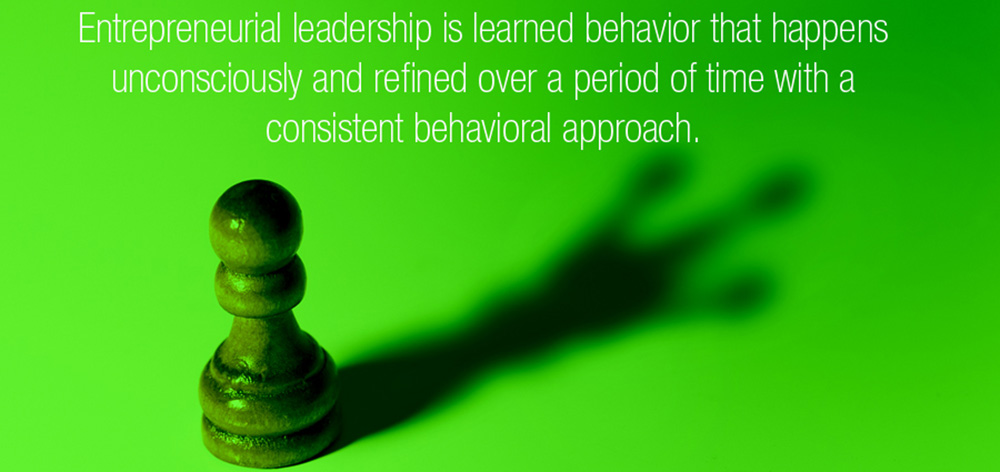In my view, successful entrepreneurship is envisioning snapshots of future building success scenarios, way ahead of others, and building pragmatic strategies to convert the vision into reality. More importantly, organizational success is best achieved by identifying and harnessing others’ aspirations, providing them with an environment that facilitates their goals while inspiring them to reach their full potential, and leads them toward mutually beneficial results aligned with the organizational goals.
In the contemporary business era, one needs to show what difference he or she made in the world and the innovation his or her business brings to the table.
The success and sustainability measure in the business space is about growth, how many people they cover, and how extensive their business is. Business growth is not necessarily how much wealth they have kept as reserves or surplus, but it includes their vision, market scale and scope, flexibility, innovation, self-awareness, adaptability, and recognizing challenges as potential opportunities.
In a nutshell, entrepreneurial leadership is a learned behavior that happens unconsciously and is refined over a period of time with a consistent behavioral approach.

I would like to share my six key ingredients for success with any upcoming entrepreneurs. They can translate an idea into reality:
- Vision
- Organizational Culture and Support Structure
- Ability for Timely Evaluation of An Opportunity
- Core Competency Development
- Strategy Execution
- Gaining Competitive Advantage
Every human activity is needs-based. The proverb, “Necessity is the mother of invention” (Plato), explains this phenomenon. Every business enterprise emerges out of an idea. An idea changes life, it also influences many more.

To begin with, an initial idea is hazy and imprecise. The architect of the idea chases it, spends considerable time on it, and finally beats it into a shape at the conscious level. Once it assumes a concrete and definite shape, the idea manifests itself as a vision for the idea’s author.
In the second phase, once the idea is firmly developed, the entrepreneur inspires people to reach their full potential while influencing them to align their goals in achieving the organizational vision. At this stage, the entrepreneur’s strategy is to bring key personnel under their umbrella through a set of influences. The entrepreneur acts as a role model for everyone down the line. In this process, the entrepreneur emerges as a man or woman of values, vision, dynamism, and consistency, capable of influencing people in achieving common goals with the entrepreneur’s leadership style while maintaining the organizational culture.
In the third phase, the entrepreneur evaluates an opportunity and acts in a timely manner considering his or her organization’s core competencies while considering the cost. Most successful entrepreneurs make decisions based on their intuition and previous experience. When they come across an opportunity, they make quick decisions without wasting their time while considering the risks, even though they are not 100 percent certain about the outcome. Once entrepreneurs firmly believe in an opportunity, they influence and align people in achieving the common goal, and they develop a positive momentum. They figure out a solution as part of their journey, whereas others (non-entrepreneurs) do not act on the opportunity due to “fear of failure” or seeking a perfect solution, or they move on to the next idea before acting on the previous one or act when it’s too late.
In the fourth phase of core competency development, entrepreneurs initiate and redefine a strategy considering acquired experience and domain expertise within the trusted network as to how their plans can be executed. In this phase, entrepreneurs aim at building or acquiring key resources who believe in their vision and who have complete trust in their leadership. A high level of self-awareness helps leaders in understanding strengths and weaknesses. If they drift from their center of focus, leaders with strong self-awareness can get back on track easily without being lost in the world of temptations.
Core competency reminds me of a famous quote by Mahatma Gandhi: “Live as if you were to die tomorrow and learn as if you were to live forever.” — Mahatma Gandhi.
I strongly recommend continuous education for every entrepreneur or leader to remain competent and updated constantly in order to make the right business decisions at the appropriate time. At the same time, leaders can advise their key team members on improving their core competencies for mutual benefit.
In the fifth phase, strategic execution starts with the culture of accountability, prioritization, and timely decision-making on key strategic and operational initiatives.
This reminds me of a famous quote: “Vision without execution is hallucination.” — Thomas Edison.
Successful execution comes with clearly defined roles and decision-making rights aligned with a proper compensation structure to motivate people to act in the organization’s best interest, rather than in their own individual interest, and well-defined communication channels that feed required information in a timely manner.
The final phase of gaining competitive advantage: Upon acquiring required core competencies, entrepreneurs believe in their core values and purpose, and they aim at creating a sustainable culture of accountability to gain competitive advantages such as operational efficiencies, value creation, ease of use, superior product or service quality, speed to market, and so on. Thus, a system becomes operational with its own business orientation, alignment, and culture.

What begins as an idea or vision in an individual’s mind becomes an obsession for the entire organization. They pursue it with passion and determination to gain a competitive advantage. As a result, a rich organizational culture emerges that cannot be easily imitated. Finally, the author of the vision emerges as an invincible entrepreneur with the ability to realize all of his or her set goals.
About Author
Dr. Srikanth Gaddam is the author of multiple books, a seasoned entrepreneur, and an angel investor. He graduated with a Doctor of Management (DM) from Case Western Reserve University, MBA from the Ohio State University, and the Owner President Management program (OPM 43) from Harvard Business School. His greatest accomplishment lies in raising ERP Analysts, Inc from a two-person organization to a multi-million-dollar firm. ERP Analysts, Inc has been recognized as one of the fastest-growing companies by Inc. 5000 for ten years. Deloitte Fast 500 & Business First Fast 50 for several years. ERP Analysts is recognized as the “Best Places to Work” in Ohio for several years. Dr. Gaddam is the author of The Entrepreneurial Guide: The Key Principles of Building and Growing Your Business, The Future of Disruptive Technologies: Impacts on Business, Workforce, and Societies, Destination Success: Discovering the Entrepreneurial Journey, and co-author of Roadmap to Success.
More information about his books and articles on entrepreneurial and disruptive technology topics can be found at DestinationSuccess.us.





